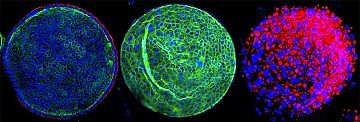The International Workshop on New Approaches to Discover Vaccine and Drugs for Infectious Diseases held at ICGEB New Delhi, hosted 65 scientists and researchers from India, Egypt, Algeria, Iran, Rwanda, and Nigeria.
From 2-4 December, 2024, the ICGEB in New Delhi hosted a pioneering workshop focused on innovative approaches to discover vaccines and drugs for infectious diseases, with an emphasis on Malaria and Tuberculosis (TB). The workshop featured lectures, practical demonstrations and poster presentations and was jointly organised by four research Groups at ICGEB New Delhi: the Parasite Cell Biology, Malaria Biology, Translational Bioinformatics, and Cellular Immunology Groups.
It brought together over 65 participants from India and around the world, including Algeria, Egypt, Iran, Nigeria, and Rwanda. The primary aim of the workshop was to familiarise researchers with cutting-edge techniques and strategies in the discovery of effective treatments and vaccines for Malaria and TB. The event featured scientific lectures from internationally renowned experts in the fields of immunobiology, malaria and TB. Among the distinguished speakers were Lawrence Banks (Director General, ICGEB), Lilach Sheiner (Glasgow Biomedical Research Centre), Vinay Nandicoori (CCMB, Hyderabad), Amit Singhal (A*STAR Infectious Diseases Labs, Singapore), and Saman Habib (CDRI, Lucknow). The talks covered key areas such as genomics and proteomics for identifying new drug targets, novel strategies to combat drug resistance, and recent developments in clinical studies related to Malaria and TB.
Practical hands-on sessions formed a vital part of the workshop, allowing participants to engage with experimental techniques. These included Mycobacterium tuberculosis culture and drug screening using the Alamar Blue Assay (MABA), transgenic Plasmodium falciparum parasite generation, and microscopy to study GFP fusion proteins in Malaria parasites. Participants also explored the TruNAT molecular diagnostic platform for TB, as well as in-depth TB diagnosis techniques such as the Interferon Gamma Release Assay (IGRA).
In addition to the lectures and practical demonstrations, the workshop provided a platform for participants to showcase their research through poster presentations. The best posters were selected and awarded, and several participants were given the opportunity to present their work in lightning talks, based on their abstract submissions.
The workshop proved to be an enriching experience for all attendees, providing a valuable opportunity to interact with experts, exchange ideas, and deepen understanding of the latest advances in infectious disease research. Participants expressed enthusiasm about future collaborations and many showed interest in joining ICGEB for short-term fellowships to further their research.
The workshop highlighted the growing international collaboration in the battle against Malaria and TB and underscored ICGEB New Delhi’s role as a key hub for cutting-edge research in infectious diseases. The exchange of knowledge and expertise over the three days not only enhanced participants’ scientific acumen but also fostered long-lasting professional connections, setting the stage for future advancements in global health.
